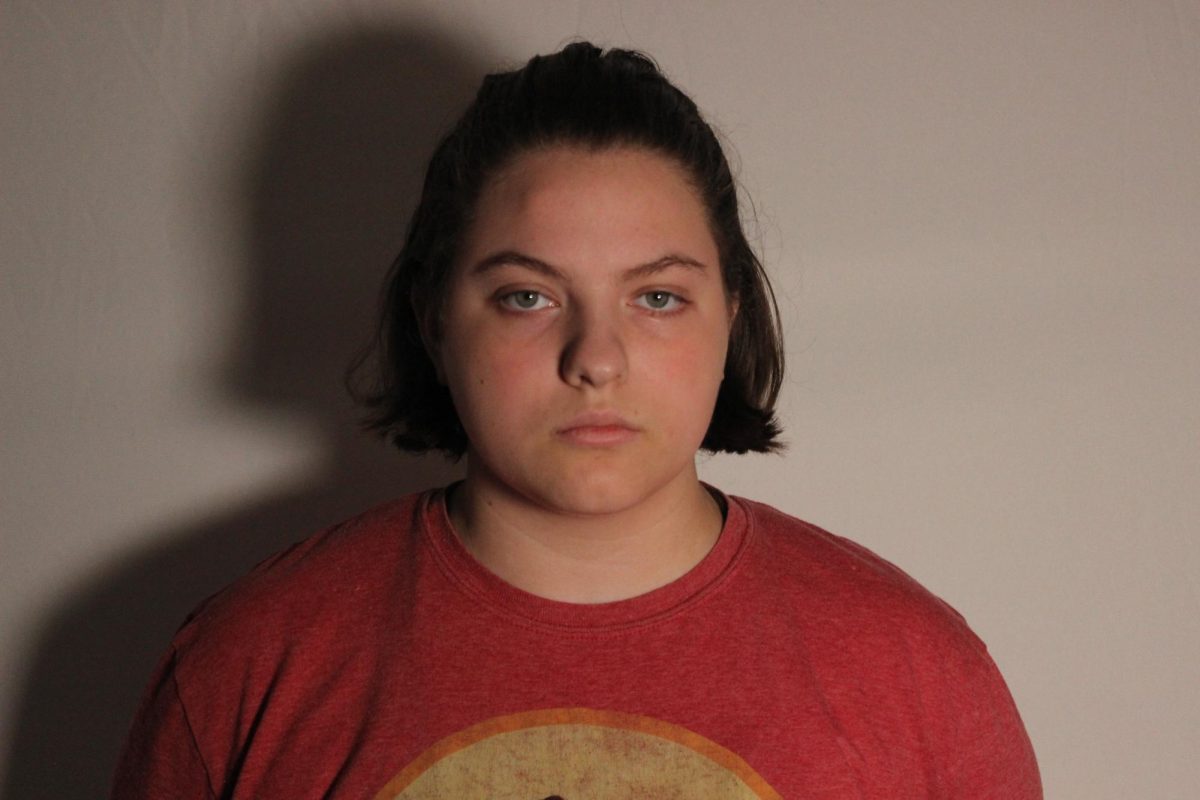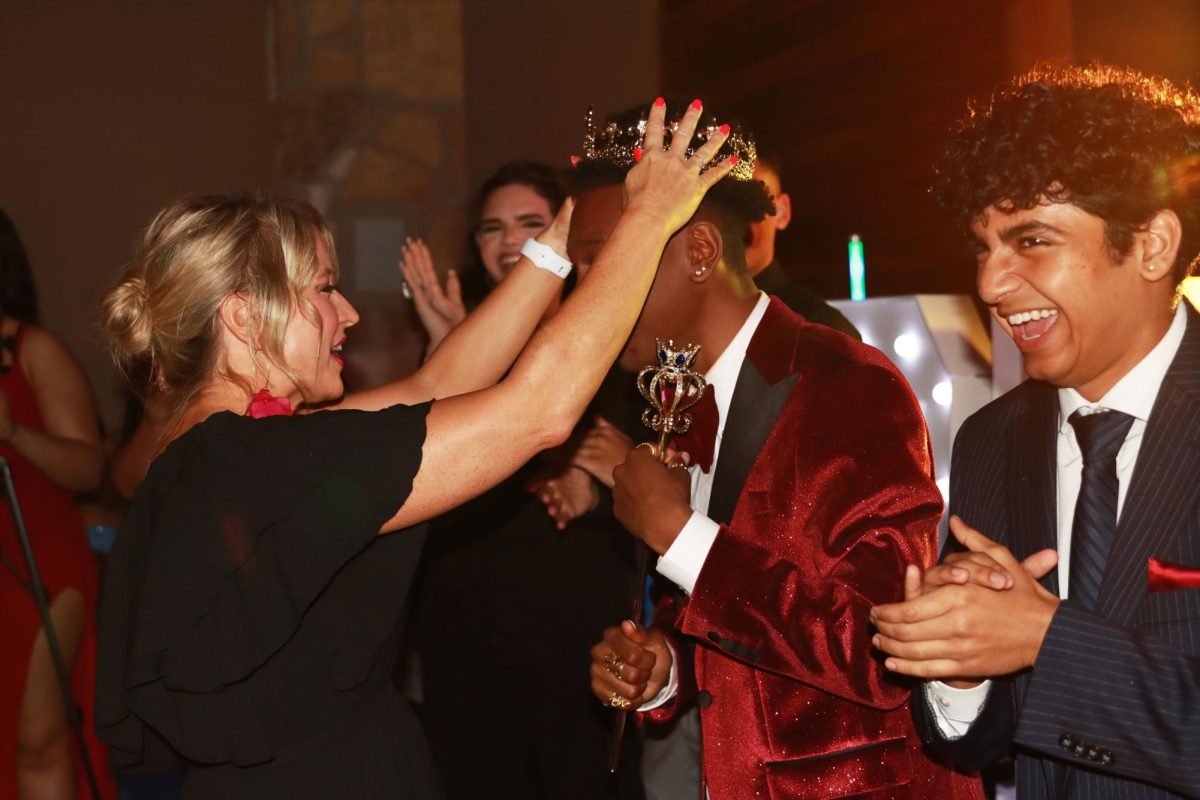The downward spiral of over analyzing and self-destructiveness began in seventh grade for junior Riley Johnson. For her, panic attacks and exhausting compulsions are anything but skin deep. However, over time, she has learned to cope with her mental health struggles.
Johnson’s experiences are not abnormal in today’s high schoolers. One of our Heritage teachers has their own perspective on how mental health is perceived in their generation, but Johnson is a student who is aware that she views mental health through a different lense than people in the past generations may.
“Especially in more stressful times, I have to stop the conversation for like 10 seconds to repeat the sentences in my head or under my breath,” Johnson said. “I’m also really bad at overanalyzing everything I say. I said, ‘Hi,’ to one of my teachers and I feel like he hates me now because I feel like I said it in an awkward way. I used to not have it, but I struggle with social anxiety which causes me to freeze up. I’m just really bad at talking to people I don’t know.”
During her pre-teen years, Johnson admitted that she tended to go into an era of self-hatred and over analyzing.
“I just build on my stress and make everything worse,” Johnson said. “I had the worst friend drama ever and my parents got divorced that year. I usually just wrote depressing quotes in a journal.”
Johnson claimed to have had an invalidating experience in seventh grade with the Roach Middle School staff. She expressed that even though it was a dreadful time for her, the staff members, all of another generation, showed a lack of interest in the hardships she was facing.
“I would tell them about my situation, and to them it was just regular kid drama that they didn’t care about,” Johnson said. “When in reality, it was wrecking everything. I just know that their words made me feel unimportant, as if I was being overdramatic when I wasn’t even trying to be dramatic at all. It just made me feel like I didn’t matter, and that I shouldn’t care as much as I did.”
To Johnson, the words made her feel that she should feel OK when she wasn’t.
“I think people from the past generation view mental health as something that’s almost stupid,” Johnson said. “They treat it like it’s a smaller problem than it actually is and they don’t see how much it affects people. To them, I think that mental health is something that they shouldn’t talk about. I think they view it as something that’s unnecessary because they went without the help that they needed.”
On the other hand, AP psychology teacher Mr. Williams has his own views on the general topic of mental health. He believes that mental health is significant to our society today and thinks that there is much uncertainty that lies around it.
“I think we’re in a time now where there’s a lot of misinformation, there’s a lot of confusion as to what it is,” Williams said. “A lot of people when they think of mental health, they think of crisis or things going very badly. But in reality, it’s everything from minor fluctuations to how we feel to dysfunction in the way we want to live our lives. When I think of mental health now, sometimes it’s used as a scapegoat for an explanation about what’s going on in the world. But in reality, it’s about how people can live their lives the way that they want to and have a quality of life to be happy.”
Williams communicated that in his generation, as of right now, mental health is viewed as a key component of living in the world. But despite that, the past generation has trouble taking advantage of the opportunity to truly understand it.
“I think my generation understands that it is important,” Williams said. “A lot of times, my generation is almost like a spectator to it, but I think the reason I say that is because we see it out there. We don’t necessarily understand it until maybe it happens to someone that we know or someone that we love. I’ve had family members that struggled greatly with mental health and it required me even as a psychology teacher to really try and understand it all. In my generation right now, because we are so busy with careers and jobs and families, we just don’t want to take time to slow down and understand.”
Williams conveyed that he thinks the past and present generations have such different viewpoints on mental health because both generations are usually short with each other when it comes to point of views.
“Sometimes your generation thinks because we don’t quickly understand what you’re talking about or where you’re coming from that we are against you, so I think that sometimes there’s an immediacy of resistance and conflict,” Williams said. “We have our own ideas and things like that as well, but we’re also kind of like old dogs in a way… it’s hard to teach us new tricks. But I think the biggest issue is that I think my generation doesn’t stop to try and understand where you’re coming from, and on the flip side I don’t think you guys stop to understand where we’re coming from either. I think if we both do that, I think we can find a place in the middle where then true dialogue and true understanding can happen.”
Bottom line, Johnson explained that society is more desensitized to mental health now more than ever, and that understanding it helps aid in understanding yourself more.
“So many people are realizing how normal mental health struggles are, I think a lot of that has to do with the internet,” Johnson said. “Back then, you couldn’t use mental health, you couldn’t have mental health, that would’ve meant something was wrong with you. Understanding your relationship with mental health leads to understanding yourself better. It’s more important now, and more normalized than it was back then.”







